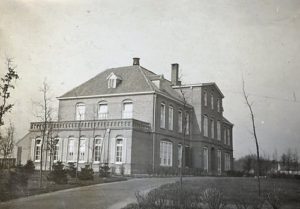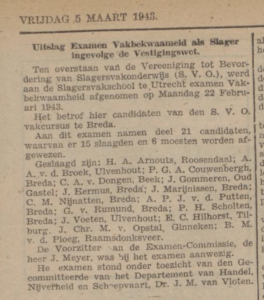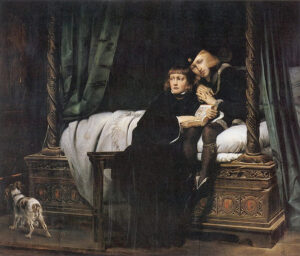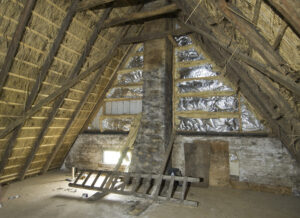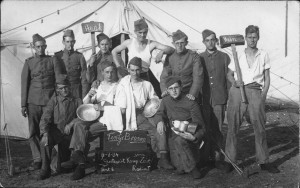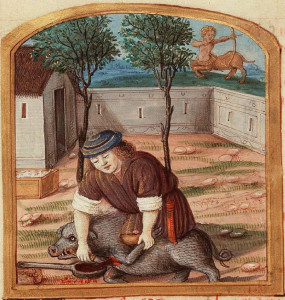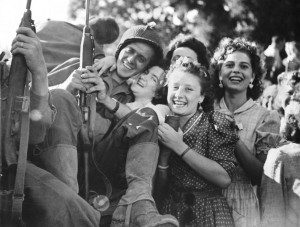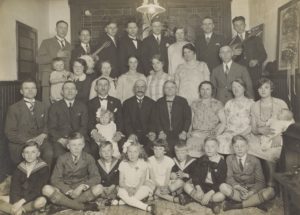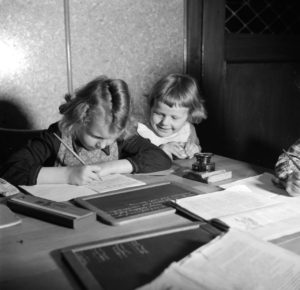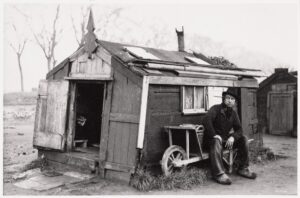If your ancestors died in a place where they did not live, there could be a story there. Perhaps they were committed to a mental hospital, like Thomas Cammenga or Gerrit Jan van Nijkerken. Perhaps they met with an accident, like Adriaan Marijnissen. Perhaps they were in jail, or visiting relatives. You can check the links articles for examples of how you can approach such research. … [Read more...]
Dutch term – Vakblad
A vakblad is a trade journal. Trade journals became popular in the early 1900s, though some go back further. Trade journals can have interesting information about your ancestors, such as: information about completed education or achieved diplomas membership of unions, committees, organizations publications by our ancestors information about their employers images of the trade they were in. You can find trade journals by searching the Tijdschriften [magazines] section at … [Read more...]
New Dutch Evidence for the Missing Princes in the Tower
In 2012, Philippa Langley stunned the world by leading the successful search for the body of King Richard III of England. One mystery remained to be solved: the fate of Richard's nephews, Edward and Richard; the sons of his older brother King Edward IV, and pretenders to the throne. They were last reported in the Tower of London in 1483, aged 12 and 9. Some argued the boys were killed by their uncle, while others argued they escaped or died of natural causes. Centuries of biased reporting from … [Read more...]
Dutch term – Zolder
A zolder is an attic. You may come across the term in estate inventories, that describe the items per room. People often used zolders for storage. In some cases, the zolder would be used to sleep. Attics were often poorly insulated, so this could be cold unless you slept next to the chimney. I heard a story of a Frisian family where the older boys had to sleep in the attic over a cow shed, which was very cold in winter. The house was not big enough for all the children so only the younger … [Read more...]
The 10 Most Important Record Groups for Dutch Research
Here are the ten record groups I use for virtually any research project where I want to know more than just names, dates, and places. When you find an ancestor in a new-to-you place, try finding out where all of these records are kept. See the post on Which archive keeps the records of your Dutch ancestor to learn how to find the archives for a particular place. Many of these records have been scanned and indexed and can be consulted on the websites of the archives where they are kept, at … [Read more...]
Dutch term – 9ber or 9bris
In old records, you may find the word 9ber or 9bris for the month. This means November or Novembris [Latin]. The names of the months were established when the start of the year was in March and November was the ninth month. Do not confuse 9ber for September, the ninth month of our current calendar. … [Read more...]
Dutch Genealogy News for October 2023
This is an overview of the new sources, projects, and other news that was announced last month. Sources Regionaal Archief Zutphen is indexing the church membership records of Brummen, Hall, Gorssel, Laren, Lochem, Warnsveld and Zutphen. Each Thursday, the newly entered entries are added to their ancestor database. The society Veluwse Geslachten has made 37 publications, mostly transcriptions of church records of various places in north-west Gelderland, available for free to their … [Read more...]
Dutch term – Oom
Oom means "uncle." Like in English, the Dutch word oom is used for the brother of a parent, or the husband of the sister of a parent. There is no separate word for paternal or maternal uncle. You may encounter references to ooms in guardianship records, estate inventories, as specification of how witnesses are related to the main parties, and in many other types of records. Records do not usually differentiate between full and half uncles, or between uncles-by-blood or uncles-by-marriage. … [Read more...]
Quick tip – Spelling variations
In the past, there was no concept of official spelling. Do not rule out that a record is for your person just because their name is not spelled the way you think it should have been. In the Netherlands, spelling of surnames should have been fixed since 1811, but errors occurred even later. We tend to think of the written word as the canonical version, but in the past it was the spoken word. The written version was just a derivative. And don't forget that many of our ancestors were illiterate … [Read more...]
Dutch term – Palingvisser
A palingvisser is a fishermen that specializes in catching eel. Several villages around the Zuidersee (South Sea, now a lake called IJsselmeer), like Volendam, were famous for their eels. … [Read more...]
